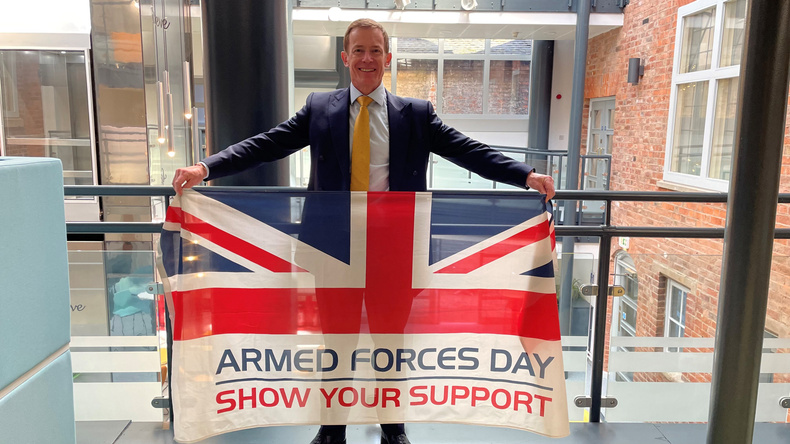Good leadership doesn't need a badge of rank: Maj (Retd) Alan White

Retired British Army Major Alan White comes from a proud military family, with more than five members having sacrificed their lives in service since the First World War.
He is still a member of the reserve forces alongside his roles as leader of Staffordshire County Council and chief executive of Malvern Hill Science Park.
When I sat down with him to discuss his life in the military and his career as a public servant in honour of the upcoming Armed Forces Week, he naturally came across as a cheerful, straightforward character with a demeanour that exemplifies a military veteran for all the right reasons.
“It’s a long and extensive experience in the military,” Alan tells me.
“I joined the Air Cadets when I was a teenager. Then I went to university at Liverpool and joined the University Officer Training Corps (then part The Territorial Army, now the Army Reserve) for three years.
“After I was commissioned, I went to Sandhurst (nicknamed as The Factory by the troops), and joined the Parachute Regiment, serving for 10 years.”
After the military, Alan was the business development manager of Aston Science Park and later through the efforts of his family and friends, stood for election in 2003 to the Lichfield District Council, kickstarting a career in politics.
He was appointed leader of the Staffordshire County Council in 2020 and uses his old experience and training to lead the council in good measure. But the transition was more than just a basic training drill.
“There are some profound differences in public leadership as opposed to the military, be it politics or business. In order to become an officer in the army, you've got to pass selection tests and there’s always a rank on my sleeve, saying what status I am.
“It’s more casual in civilian life and I found that informality very difficult.”
“But the leadership component that you're taught in the army is something that doesn't require a badge of rank on your shoulder and that’s what we bring to the civilian world - persuading people to do things they wouldn't necessarily want to do despite the fact you haven't got any rank on.
“It's that power of persuasion. It's the ability to get people to pull in the same direction.
“That's a really useful skill that I picked up in the Army that's served me very well in the civilian world and indeed the political world particularly.”
The council leader also wants to see more support towards veterans.
“The Armed Forces Covenant guarantees a job interview, but the biggest challenge is translating these military skills into the civilian world. It's often quite difficult for military people to articulate their skills because it's much broader than that.”
Alan believes in the importance of bridging the gap between military and civilian life, highlighting the value of having civilians come in to assist those who are about to leave the military to help them understand the civilian world and offer practical support.
“It's dead lonely when you first leave the army because you're no longer surrounded by people who have gone through the same intense experiences. A support system would make a world of difference,” he says.
Drawing this animated discussion to a close, I ask about what business can do to bridge this gap and help Armed Forces.
“Take the plunge and give someone from The Armed Forces a chance,” Alan says. “They will turn up at the right time in the right order of dress and ready for work and they will do as they're told.
“And you will be pleasantly surprised at how dependable and capable they are.”
